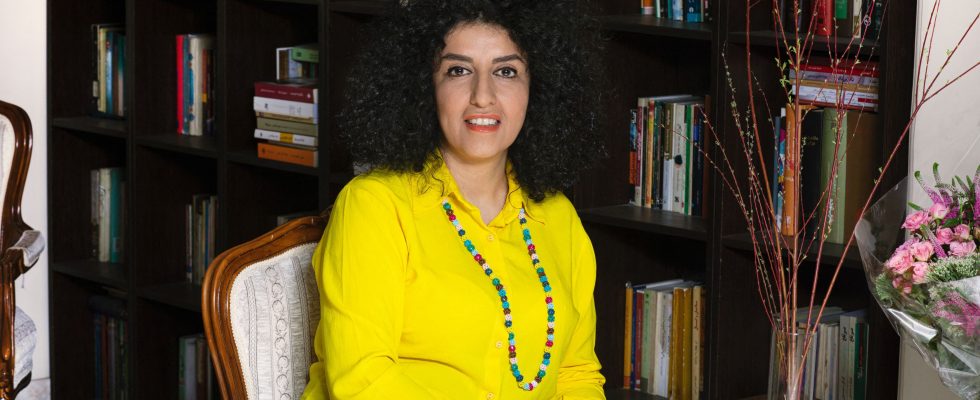Twenty years later, the story stammers. An Iranian woman, defender of human rights, particularly of women and children, receives the most highly symbolic distinction from the Oslo jury. Like Iranian jurist Shirin Ebadi, just twenty years ago, Narges Mohammadi was awarded the Nobel Peace Prize. For Shirin Ebadi, winning the Nobel was synonymous with reinforcing the harassment she was already experiencing in Iran and exile. For Narges Mohammadi too, because she is vice-president of the Center for the Defense of Human Rights founded by the judge and lawyer, winner in 2003. Narges Mohammadi, 51, is a journalist and mother of two children. Twins, whom she has not seen since they were 8 years old, because, since 2016, she has spent most of her time in prison, often in solitary confinement, the victim of legal harassment due to her fight for freedom. Narges Mohammadi particularly protested against the death sentence of minors. Let us remember that Iran is, after China, the country which imposes the death penalty the most and which has recently executed several young people who were minors at the time of the acts with which they were accused. The Islamic Republic, which faced an unprecedented wave of protest born in the fall of 2022, uses the threat of the death penalty as a tool of repression against demonstrators.
As the Nobel committee states, this award supports the “Women, Life, Freedom” movement, born in Iran following the death of the young Mahsa Amini, arrested for a poorly worn veil and killed in detention. After massive demonstrations, the rejection of power took a more diffuse form, but actions of civil disobedience, particularly on the part of women who refuse to wear the veil, have not stopped. If this award salutes the recent uprising, celebrating the figure of Narges Mohammadi also allows us to understand that this revolt has not existed for only a year. It has been brewing in Iranian civil society since the advent of the Islamic Republic forty-three years ago.
A fight with increasingly unequal weapons, as the regime makes disproportionate use of force to suppress the slightest flame of rebellion. This prize finally represents hope for freedom activists in Iran, the vast majority of whom feel like they have been forgotten by the West. After strong condemnations at the time of the uprising, business has resumed, particularly in terms of nuclear negotiations. Furthermore, the country has increased its oil production and, despite international sanctions, continues to massively sell black gold to China in a tense energy market. On the diplomatic and financial fronts, the Islamic Republic feels more legitimized than ever.
During a recent exchange, Shirin Ebadi confided to L’Express that she did not regret having obtained this distinction, despite all the difficulties – harassment from the authorities and exile – that it meant for her. For what ? “Everything that we endure, whether it is the Iranian people or myself, is caused by the Islamic Republic. The Nobel Prize simply allows me to express that across the world, and I am grateful for that.” Let us hope that, twenty years later, the Narges Mohammadi prize will give a new platform to Iranian women.
